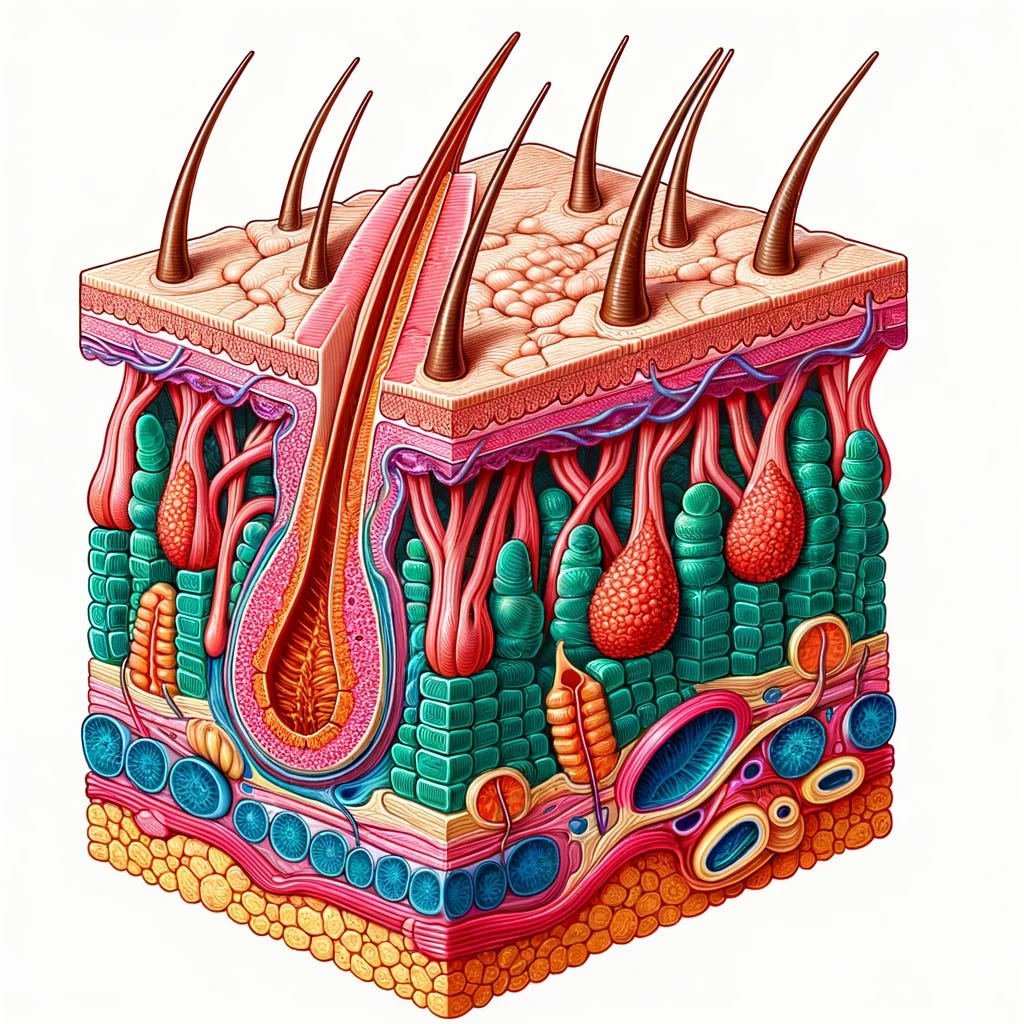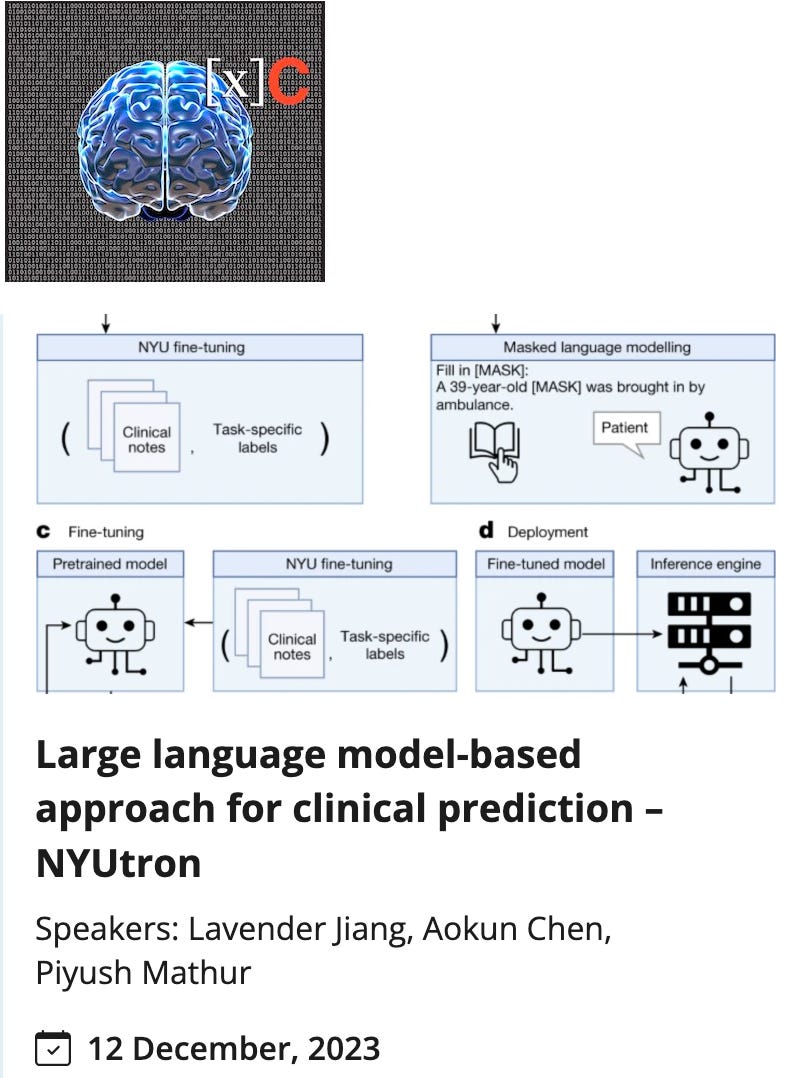🌟 Revolutionizing Medicine with AI: Tackling Antibiotic Resistance, Streamlining Admissions, and Pioneering Drug Discovery 💡
Updates on Artificial Intelligence and Emerging Technologies in Medicine 🤖🩺🚀
“Our intelligence is what makes us human, and AI is an extension of that quality.” –Yann LeCun
Dear Med AI Enthusiast,
Welcome to The ‘Med AI’ Capsule fortnightly newsletter, your inside look at how artificial intelligence and emerging technologies are revolutionizing medicine.⚕
Whether you're a medical professional 👩⚕️, a technology enthusiast 💻, or simply someone with a curious mind 🧠, The 'Med AI' Capsule is designed for you.
It helps you stay informed 📰 about the latest groundbreaking updates and offers insights into the rapidly evolving world 🌍 of artificial intelligence and emerging technologies in medicine.
Let the adventure begin! I'm thrilled to have you along for the ride. 🚀
In today’s capsule:
3 Med AI News Updates
2 Emerging Tech News Updates
1 Upcoming Med AI Event
Reading Time: 5-7 minutes
Med AI News Updates 📰
1. 🔬 Oxford's AI Innovation Promises Faster Antibiotic Resistance Detection

Why Important: Oxford researchers have developed an AI-based method to detect antibiotic resistance in just 30 minutes, potentially transforming the speed and accuracy of antimicrobial resistance (AMR) diagnostics.
”Time is beginning to run out for our antibiotic arsenal; we are hoping our novel diagnostics will pave the way for a new generation of precision treatments for the most sick patients.” - Aleksander Zagajewski, doctoral student with the University’s Department of Physics
Caution: The method, still in development, faces challenges in scalability and adaptability for diverse antibiotics and bacteria, with implications for the balance of AI and traditional practices in healthcare.
2. 🏥 NHS Trials AI to Reduce Hospital Admissions and Boost Winter Response

Why Important: The NHS is piloting an AI system in Somerset to identify high-risk patients, aiming to alleviate pressure on A&E departments and reduce unnecessary hospital admissions.
“By using tools and techniques like AI and a population health management approach, the NHS is increasingly able to find those individuals early and offer targeted, preventative and personalised healthcare.” - Matt Neligan, NHS England director of system transformation
Caution: While this AI initiative shows promise in enhancing patient care and operational efficiency, its effectiveness in diverse healthcare settings and its impact on traditional care methods remain to be fully evaluated.
3. 🤖 Nvidia and Alphabet's SandboxAQ Forge Alliance for Advanced Drug Discovery Tech

Why Important: This partnership marks a significant step in utilizing AI and quantum computing for simulating chemical reactions, potentially accelerating the development of new medicines and materials.
“SandboxAQ’s AI simulation capabilities, augmented with Nvidia accelerated computing and quantum platforms, will help enable the creation of new materials and chemical compounds that will transform industries and address some of the world’s biggest challenges.” - Eric Schmidt
Caution: The practical application of these advanced technologies in real-world scenarios, particularly in healthcare, is still emerging and faces challenges in terms of scalability and integration with current systems.
Emerging Tech News Updates 📰
1. 🔬 First Successful 3D Printing of Hair Follicles on Engineered Skin Tissue: A Leap in Regenerative Medicine
Why Important: Scientists at Rensselaer Polytechnic Institute have achieved a groundbreaking feat by 3D printing hair follicles in lab-grown human skin, paving the way for advanced skin engineering and regenerative medicine applications.
“The team has already successfully printed skin with working blood vessels, and this latest research is an exciting next step in developing and testing better treatments for burns and other skin conditions.” - Deepak Vashishth, Ph.D., director of the Shirley Ann Jackson, Ph.D. Center for Biotechnology and Interdisciplinary Studies.
Caution: While this innovation marks a significant step forward, the engineered tissues currently have a limited lifespan, and further development is needed to fully realize the potential of this technology in practical applications like drug testing and skin grafts.
2. 🧬 UK Greenlights Revolutionary CRISPR Gene Therapy for Sickle Cell and Thalassemia

Why Important: The UK's approval of Exa-cel, a CRISPR-based gene therapy, marks a historic moment in medicine, offering new hope for patients with sickle cell disease and thalassemia through a potentially life-altering treatment.
“I don’t think we want to live, or I don’t want to live, in a world where only a few wealthy or connected people can get access to something like this.” - Jennifer Doudna, cofounder of CRISPR-Cas9
Caution: Despite its promise, Exa-cel raises concerns about off-target genetic effects and requires intense immunosuppression, limiting its current application to a minority of patients and highlighting the need for broader accessibility and safety evaluations.
Upcoming Med AI Event 🧑💻
Stay tuned for our upcoming editions as we explore the latest breakthroughs and dive deep into the transformative power of artificial intelligence and emerging technologies, shaping a healthier future. 🚀
Warm regards,

P.S.: If you're a medical professional intrigued by artificial intelligence, but not sure where to start, feel free to reach out to me for personalised guidance.
You can also check out and join our vibrant Med AI WhatsApp Community for Medical Professionals.






